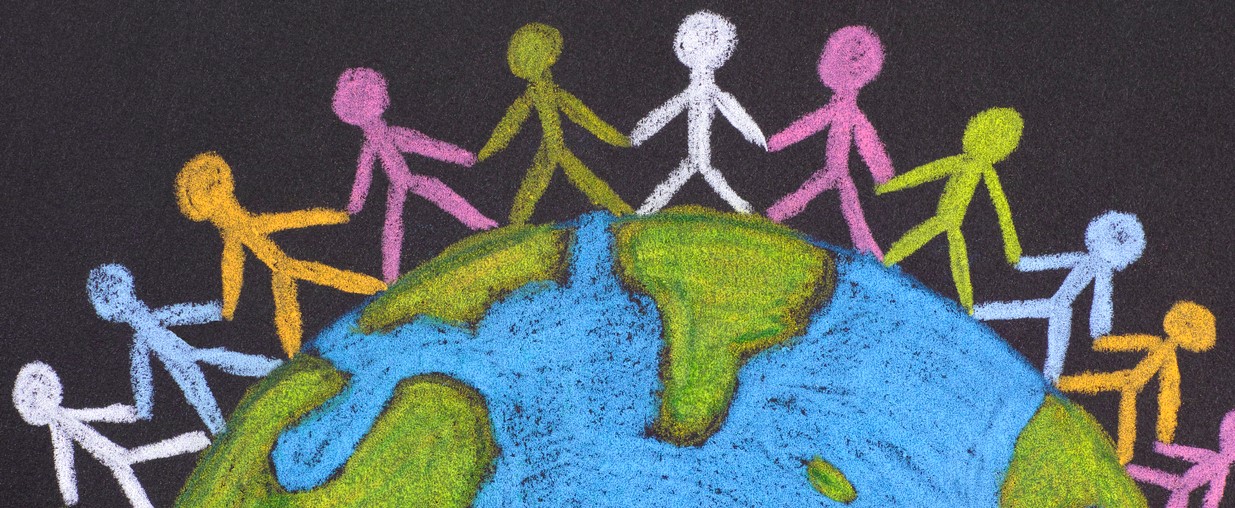
Much accomplished, still more to do

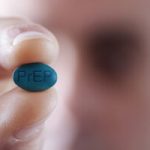
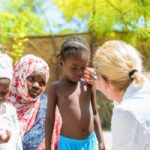
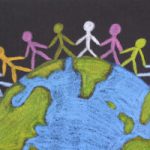
It is a kind of TÜV badge: The Access to Medicine Index (AtMI) is being published for the 8th time. It shows what has happened in terms of access to medicines, vaccines and diagnostics for people in low and middle-income countries (LMICs). Since its first publication in 2008, the London-based company GlaxoSmithKline has been at the top of the winners’ podium. GSK has firmly anchored the care of people all over the world in its corporate strategy and has the largest research pipeline relevant to these regions among the 20 companies examined, according to the report. Second place goes to the US company Johnson & Johnson. Astra Zeneca is also among the top 3. The company has moved up 4 places compared to the last edition of the AtMI. The German pharmaceutical companies represented are: Merck (5th place), Bayer (9th) and Boehringer Ingelheim (13th).

This year’s report is under the impression of the Pandemic: “The COVID-19 pandemic has shown us the power of science; cutting-edge research has produced life-saving vaccines and treatments in record time,” writes Jayasree K. Iyer, CEO of the Access to Medicine Foundation in her foreword. “But it has also highlighted the gap between rich and poor countries, because hundreds of millions of people still do not have adequate access to medicine.”
Since the report was published, a lot has happened in terms of medical care around the world, but it is not the authors’ job to be satisfied with developments – at least as long as inequalities remain as great as they are today. Companies must be measured against 31 key figures – it’s about “current performance, not promises” (Iyer’s words). The AtMI shows how much global access to therapies and vaccines has now become part of corporate strategies. But it also shows that there is still a lot to be done.
R&D: Over 1,000 projects in the pipeline
The AtMI lists 1,060 research projects for a total of 83 diseases that particularly affect people in structurally weak countries with low or middle incomes or for which there are no or inadequate treatment options. In addition to therapies and vaccines against COVID-19, there are active substances in the fight against HIVhepatitis B, malaria, tuberculosisschistosomiasis, dengue fever, Chagas disease or leishmaniasis. Since the report from two years ago, there have been 62 new approvals in these indications. 479 new research projects have been added.
The AtMI also positively assesses pricing strategies that are based on the socioeconomic opportunities of the respective countries, or assistance programs for patients that improve care and strengthen health systems. There is also the possibility of licensing agreements in which companies release their patented preparations to generic manufacturers in structurally weaker countries for production and distribution. And finally, it is simply about product donations.
Licensing agreements: A tool for strengthening local health
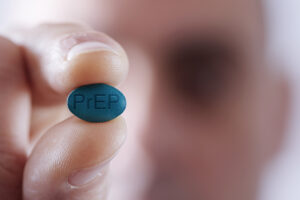
More and more pharmaceutical companies are relying on the instrument of voluntary, non-exclusive licensing agreements, the report states. Not only do they enable the production of large quantities, such as those needed to supply millions of people with HIV who have to take their medicines every day, they also represent the transfer of technology because production know-how and capacities are built up. The global HIV market leader Gilead Sciences has been using this instrument since 2006 and has signed the most licensing agreements: it puts patent protection aside for a quick, more cost-effective supply of large quantities. This also made it possible to produce its antiviral COVID-19 drug – the first to be available during the pandemic – quickly and in large quantities. Gilead’s licensing agreements have enabled millions of people in 127 LMICs to benefit. 25 third-party manufacturers thus became part of a global production network.
The competitor ViiV Healthcare has also signed a license agreement for its long-acting HIV prevention drug – the first of its kind. It allows selected manufacturers to develop, manufacture and supply a generic version to 87 countries worldwide. “A remarkable development,” comments the AtMI, “which will be particularly important for women of childbearing age in sub-Saharan Africa.” They are disproportionately affected by HIV; in the region, the disease is the leading cause of death for women and girls between the ages of 15 and 49. Pre-exposure prophylaxis (PrEP) is considered one of the most important tools for containing HIV as long as there is no cure or vaccine.
For the first time, there is also a non-exclusive licensing agreement for a cancer drug. The Swiss company Novartis is thus enabling generic manufacturers to produce its drug for the treatment of a certain form of leukemia in children and adults. Novartis is ranked 4th in this year’s ranking. The Swiss company is developing 53 active ingredients for diseases that the AtMI defines as priorities, 11 projects against malaria and 5 against Chagas disease alone. The company is also part of the Access to Oncology Medicines (ATOM) initiative, which aims to promote access to cancer drugs in structurally weak countries. Novartis places particular emphasis on building up know-how and capacities locally.
Healthy Heart Africa: Health initiatives strengthen health systems
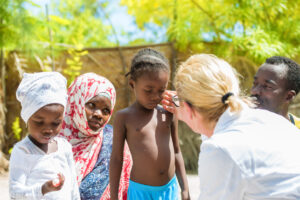
AstraZeneca has made a leap forward in the AtMI ranking – from 7th to third place. The authors attest that the pharmaceutical company has made great progress in all categories examined. It has supplied more than 2 billion doses of its COVID-19 vaccine to LMICs on the basis of licensing agreements – at cost price. Astra Zeneca launched the Healthy Heart Africa initiative back in 2014. In 10 countries on the continent, people are being informed about the consequences of high blood pressure, more than 29 million blood pressure measurements have already been carried out, more than 9,000 health professionals have been trained and further educated, and more than 1,000 medical facilities have been opened. Such initiatives have a lasting impact: In addition to the concrete health benefits for people, they strengthen know-how in health systems and support the development of health infrastructure.
Initiatives aimed at combating, controlling and eliminating so-called neglected tropical diseases (NTDs) have been successful for many years – although they have hardly been noticed in our latitudes. According to the World Health Organization, around 1 billion people live at risk of developing such a disease. In more than 40 countries, at least one of these NTDs has already been eliminated; between 2015 and 2019, more than a billion people were treated for at least one of these diseases. One of the largest projects is the Global Programme to Eliminate Lymphatic Filariasis (GPELF). Since its launch in the 1990s, the number of infections with this disease caused by roundworms has been reduced by 74 percent. GlaxoSmithKline provides the anti-worm drug albendazole for this purpose – more than 10 billion tablets have been made available since 1999. And it has promised to do so until the disease has disappeared from the world map. Bayer AG has developed one of the two available drugs against Chagas disease and will make the drug available as long as it is needed. The same applies to African sleeping sickness (African trypanosomiasis).
Global health: alarming imbalance

There is still a lot to do – the pandemic has highlighted the alarming health imbalance on this earth as if under a magnifying glass. It has also shown how much health needs to be thought of globally – the climate crisis alone will cause diseases that were previously limited to a region to spread to other regions of the world. AtMI winner GSK has announced that it will invest more than one billion euros in “global research and development” in the coming years. A further 120 million euros will be used to help strengthen health systems in poorer regions.
“The goal is simple,” writes Jayasree K. Iyer. “To ensure that people in LMICs have access to affordable drugs – from vaccines against emerging infections to therapies for diabetes and cancer.” And she adds: “We still have a long way to go.”

Ethel Purdy – Medical Blogger & Pharmacist
Bridging the world of wellness and science, Ethel Purdy is a professional voice in healthcare with a passion for sharing knowledge. At 36, she stands at the confluence of medical expertise and the written word, holding a pharmacy degree acquired under the rigorous education systems of Germany and Estonia.
Her pursuit of medicine was fueled by a desire to understand the intricacies of human health and to contribute to the community’s understanding of it. Transitioning seamlessly into the realm of blogging, Ethel has found a platform to demystify complex medical concepts for the everyday reader.
Ethel’s commitment to the world of medicine extends beyond her professional life into a personal commitment to health and wellness. Her hobbies reflect this dedication, often involving research on the latest medical advances, participating in wellness communities, and exploring the vast and varied dimensions of health.
Join Ethel as she distills her pharmaceutical knowledge into accessible wisdom, fostering an environment where science meets lifestyle and everyone is invited to learn. Whether you’re looking for insights into the latest health trends or trustworthy medical advice, Ethel’s blog is your gateway to the nexus of healthcare and daily living.



